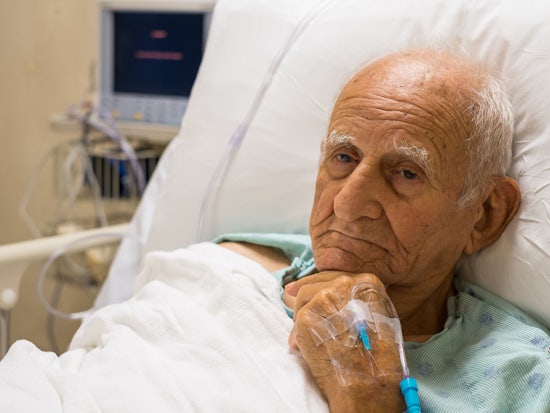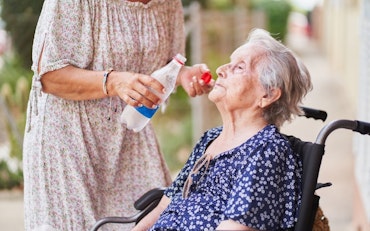Research hopes to help with avoidable hospital admissions for people with dementia
Preventing avoidable hospital admissions for people living with dementia will be under the microscope as a new research project kicks off in Victoria.

People living with dementia are “twice as likely” to be admitted to hospital (Source: Shutterstock)
Conducted by Melbourne Ageing Research Collaboration (MARC), the project aims to identify the primary reasons that people living with dementia present to hospital emergency departments and draw on the experiences and needs of carers and healthcare workers to develop resources for carers.
Research Fellow with MARC, Dr Anita Panayiotou, says the research is needed as people living with dementia are “twice as likely” to be admitted to hospital, and 2-3 times more likely to have an adverse event in hospital, than people the same age who do not have dementia.
She says the resource, that will be developed as a result of their findings, will provide carers with support in making decisions about health care needs and reducing the reliance on hospital emergency departments.
“The project came about through consultation with front line healthcare workers, researchers, policy makers, advocacy groups and community members, who identified that people living with dementia are at higher risk of hospitalisation than people the same age who do not have dementia, and that this can lead to poor outcomes for the person living with dementia and their families,” Dr Panayiotou explains.
She says that the poor outcomes experienced by patients with dementia include: falls resulting in fracture, delirium, sepsis and pressure ulcers.
“There is a strong need to develop resources that enable carers of people living with dementia in the community to make decisions about healthcare and seek suitable and timely support,” Dr Panayiotou says.
“We will analyse emergency department records at three major Melbourne metropolitan hospitals to understand the reasons that people living with dementia are presenting to hospital, exploring the experiences and needs of carers, and investigating practices and attitudes of hospital staff and GPs.
“We will use this information to develop resources to support people living with dementia and their carers to make healthcare-related decisions, seek appropriate support and avoid presenting to hospital, where suitable.
“We are hoping to improve the lives of people living with dementia and their carers by empowering carers to make healthcare decisions and seek appropriate support as soon as an issue is identified.”
The project is currently recruiting carers, healthcare workers and GPs to understand their experiences, attitudes and current practices while also continuing to seek funding to evaluate the effectiveness of the developed resources and to create an electronic resource such as a website or mobile app.










